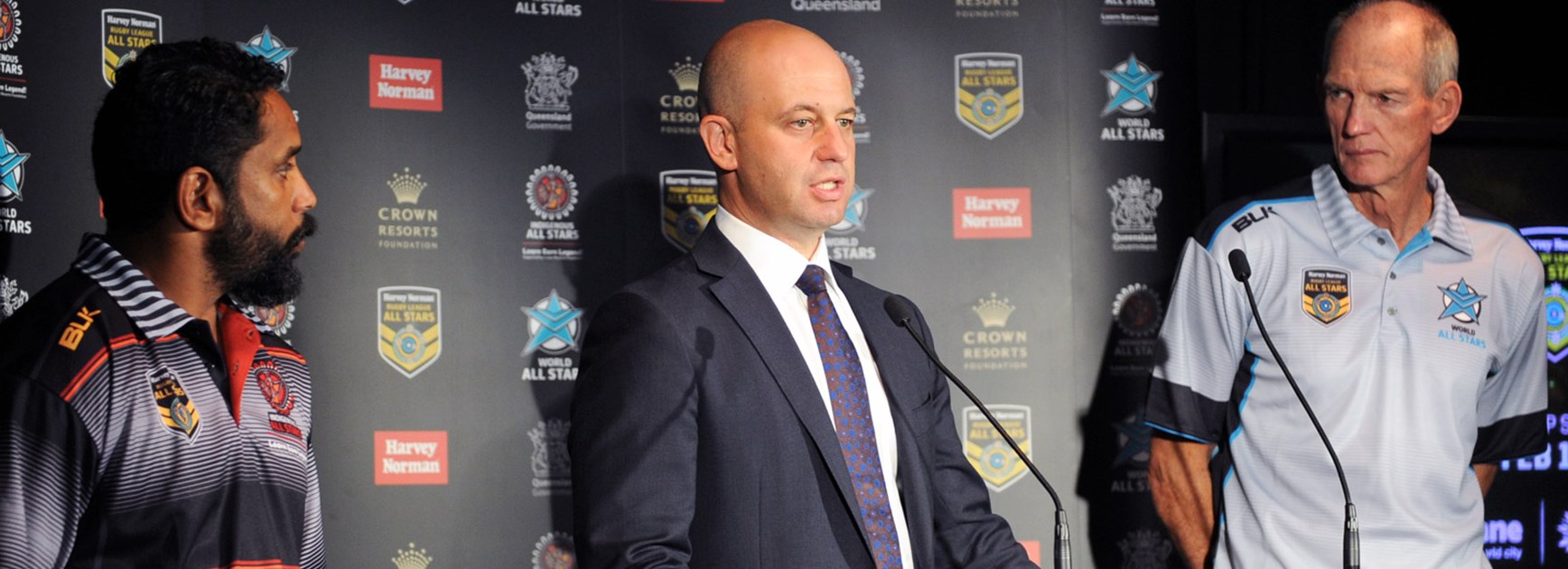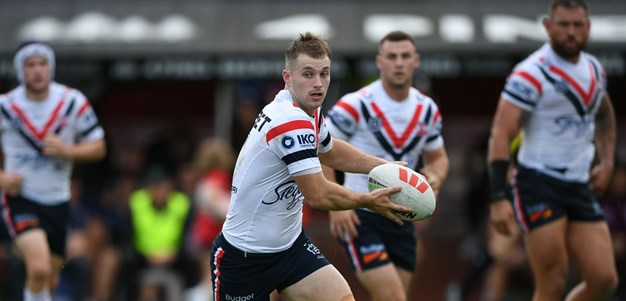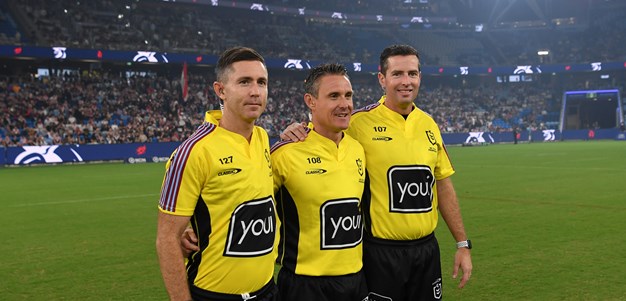
The enormous success of the All Stars concept in south-east Queensland could see it one day leave the Sunshine State when the current agreement expires following the 2016 edition in Brisbane in February.
Vote for your Indigenous All Stars
The All Stars game will be played at Suncorp Stadium for the second time since its inception in 2010 with four of the previous five matches played at the spiritual home of the All Stars concept on the Gold Coast.
More than 140,000 fans have attended All Stars games in south-east Queensland since 2010 and given the significant economic impact such an event has on a region NRL head of football Todd Greenberg said there were a number of other areas eager to lure the All Stars fixture out of Queensland.
"I can't beyond this year other than that there are a lot of interested parties who want the game," Greenberg said of a guarantee future games would be held in Queensland.
"There is a lot of economic impact that it will bring to Queensland clearly so there will be other people that will be looking to talk to us.
"We've made a strong commitment to being here in Queensland and clearly the sporting public love the event and we're hoping they'll embrace it."
Wayne Bennett once again returns to coach the rebadged World All Stars team in 2016 but having spent time coaching and living in both Wollongong and Newcastle is not surprised there are other areas interested in hosting the game's elite players.
"I've got no doubt other cities and states are queuing up because it's a great concept but it's not just a one-day concept it's a seven-day one, particularly for the Indigenous people. It's very marketable," Bennett said.
"I'm just pleased it's in Queensland and I'm happy for it to stay here but I spent three years in Newcastle and there's a big Indigenous population in Newcastle and they'd embrace it enormously, just using them as one example.
"I'm proud of the fact that the game wants to give something back and I've never had a problem with a player wanting to play in the game because we all feel the same and it is about giving back.
"It means so much to the Indigenous Australians and we can't measure that except that what we do is right and that's why we should continue to do it for as long as we possibly can."
There were fears when the All Stars match wasn't played in 2014 that its position on the rugby league calendar may become a transient one.
Ticket sales were initially slow before more than 23,000 people poured into Cbus Super Stadium in February this year and the concept's founder, Preston Campbell, said the importance of the week stretches far beyond 80 minutes of rugby league.
"Although there was a little bit of a slow start to ticket sales last year, we got a good crowd down on the Gold Coast so it just shows how important it is to a lot of people in the rugby league community, not just the Indigenous community," Campbell said.
"A lot of stuff is done through the rugby league season but that's really one week where a lot of the boys from both sides can get out into the community and really dig into the stuff that they feel passionate about.
"It's great for the community but it's also great for the footy players as well.
"[Indigenous Australians] feel so connected to it. Even though you see them walking around with the jerseys on there's a much bigger picture to it.
"If you pulled someone up who was wearing a jersey or a shirt and asked them what it meant to them, the majority would say the same thing: It means pride, it means we're moving forward and real change in our communities.
"Launching this will just give it a breath of fresh air. We speak a lot about changes and change is always good."


